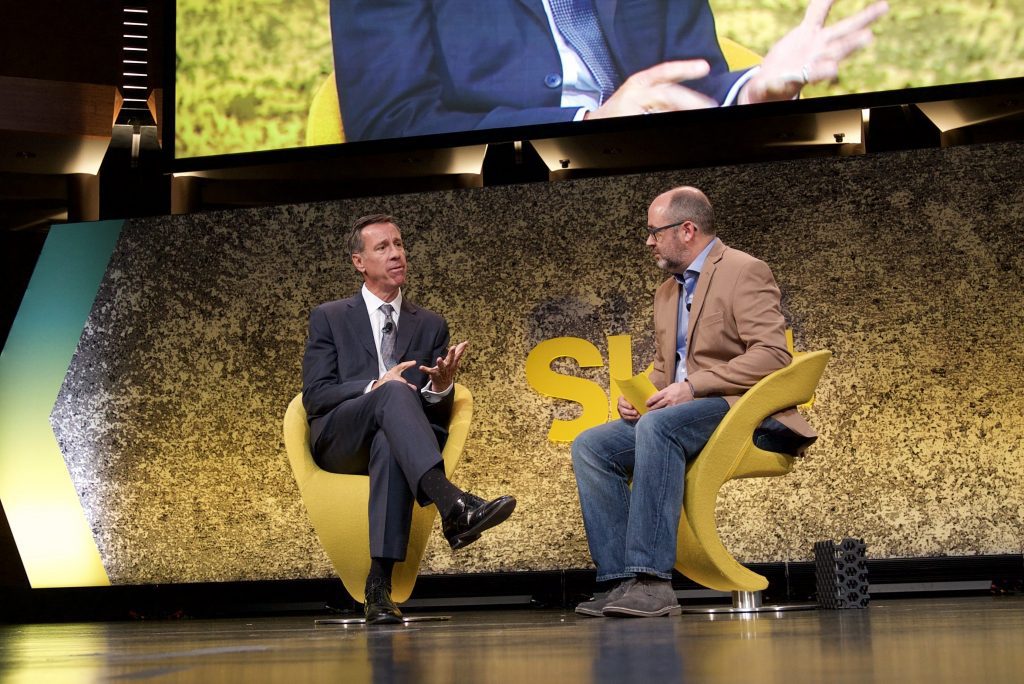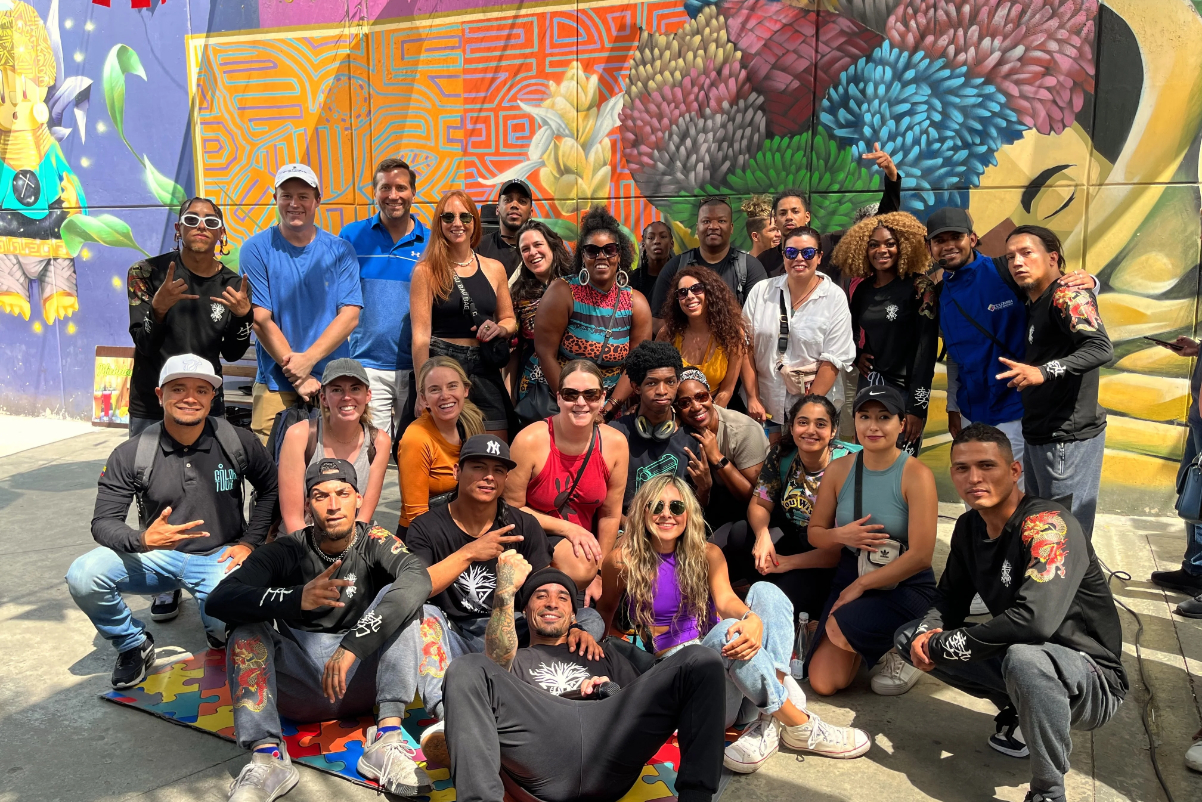Marriott CEO Believes There Are Limits to What Hotels Can Do About Security After Las Vegas

Skift Take
Marriott CEO Arne Sorenson thinks hotel security is a complex and “tough” issue, and he has no intention of trying to ban gun-show attendees or licensed-gun owners in right-to carry states.
Speaking at the Yahoo Finance All Markets event in New York City Wednesday, Sorenson addressed hotel security, given the recent Las Vegas attack in which a shooter killed 59 people from his suite at the Mandalay Bay hotel.
Sorenson described hotel security as a “tough space for us,” noting Marriott’s practices vary by region. In the highest-risk zones, for example, the company employs airport-like security practices and uses dogs to do vehicle searches.
He said that in the U.S., Marriott has never — except perhaps in cases involving security for government officials — employed metal detectors and airport-like security measures. But he noted that Marriott’s hotels regularly work with local law enforcement.
In the case of Las Vegas, Sorenson noted, there are other factors to consider, such as right-to-carry gun laws, which Nevada has. And he noted there are some guests, such as hunters or gun-show attendees, who pose no imminent threat or risk and stay in hotels.
“How do you interact with that business?,” he asked. “And there it’s probably more about the softer things. It’s about training, it’s about making sure our associates are keeping their eyes open. It is about things like how often do housekeepers go into rooms even if that do-not-disturb sign is on the room. We do all the things to do the best we can in that space and then we pray.”
U.S. Losing Market Share of International Travelers
Sorenson believes the U.S. is missing out on its opportunity to capture more share of the international travel market, primarily because of anti-globalism rhetoric being espoused by the Trump administration.
“The rest of the world is hearing too many of the voices which are coming out of the United States as in effect, ‘You’re really not welcome here.’ ‘It might be difficult for you to get a visa.’ ‘You maybe need to wonder about the experience you’re going to have there,'” Sorenson said at the Yahoo event. “I don’t know that that’s what the administration or anybody else intends the message to be, but that’s the way the message is heard in the rest of the world.”
And he said the numbers of international visitors coming to the U.S. are reflecting that: “The U.S. is today losing share of international travel,” Sorenson said.
He continued, “Before 9/11 the U.S. had about 11 or 12 percent of long-haul international travel —11 or 12 percent of all that business landed and stayed in the United States. After 9/11, of course, we beefed up security and ended up losing some share. No surprise there, and it was an important need to protect security and do things like that.”
By 2016, Sorenson said, the U.S. saw about 75 million visitors arriving in the United States.
“If we had the same share we had before 9/11, we probably would have had 110 million or 115 million, incrementally 30 million or so visitors which, by itself would drive a million jobs in the United States,” he said. “Now In 2017, what we’re seeing is there is a shift of international travel increasingly toward Europe and maybe within Asia.”
Recent numbers from the U.S. Department of Commerce support Sorenson’s statement. As of May 2017, in statistics released this month, international visitation to the U.S. dropped 2.8 percent compared to the same timeframe last year.
Sorenson’s remarks were in line with the speech he gave in April at the World Travel & Tourism Council Global Summit in Bangkok. In that speech, he urged the travel industry to listen to travelers’ concerns over globalization and security, and to respond with clear, understandable actions backed by the use of data
Corporate Tax Reform
Like his fellow hotel CEO peers, Hilton CEO Christopher Nassetta included, Sorenson said he thinks corporate tax reform, which is currently being debated in the U.S. Congress, is necessary. The way the tax policy is now, many companies are choosing not to be “domiciled in the United States” because of high tax penalties, he said.
“If we had tax reform, that money would come back to the United States,” Sorenson said. “I’ll use Marriott as an example. Money would come back to the United States. We probably wouldn’t incrementally invest. We would return it to shareholders. Our shareholders are 95 percent U.S. shareholders. That money gets back into the U.S. economy.”
But when asked if that money would be used by Marriott to increase wages for its employees and associates, Sorenson said, “No.”
Instead, he said, “I think what happens here is that the money comes back, gets invested in the U.S. economy, and the U.S. economy grows and with its growth, we end up building more hotels and hiring more people.”
The hotel industry, including the American Hotel & Lodging Association, have long been opponents of raising the minimum wage. Last year, the Fight for $15 campaign spread throughout the U.S., urging government to raise the minimum wage to $15 an hour. And in 2016, early data showed that Los Angeles’ minimum wage hike for hospitality workers was not detrimental to hotels’ business as some feared.




